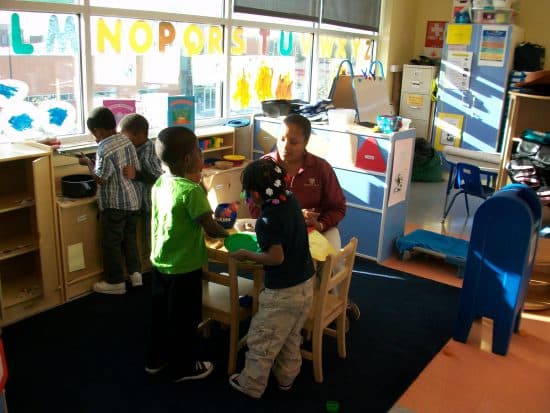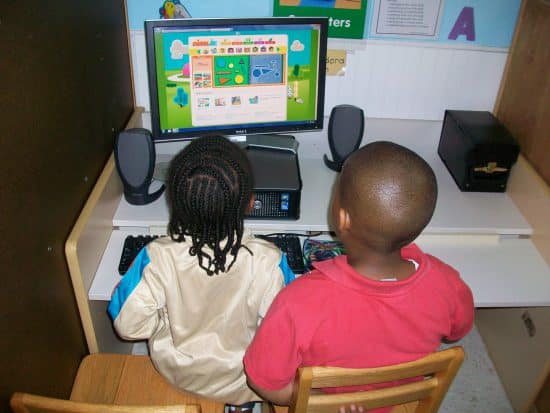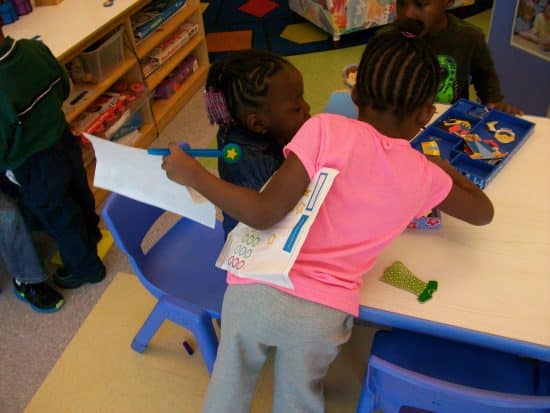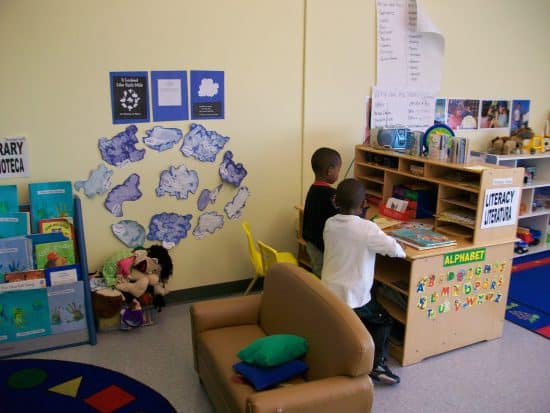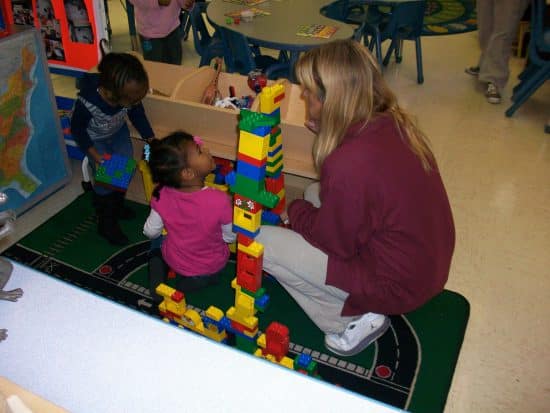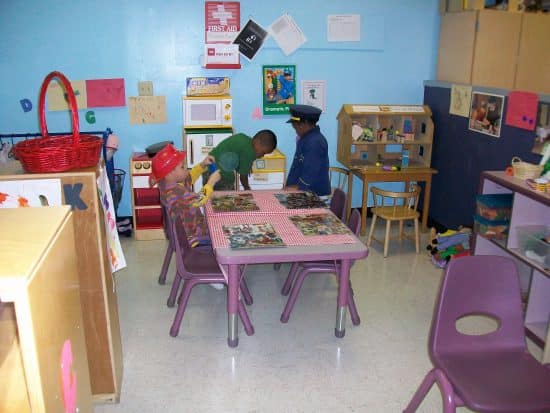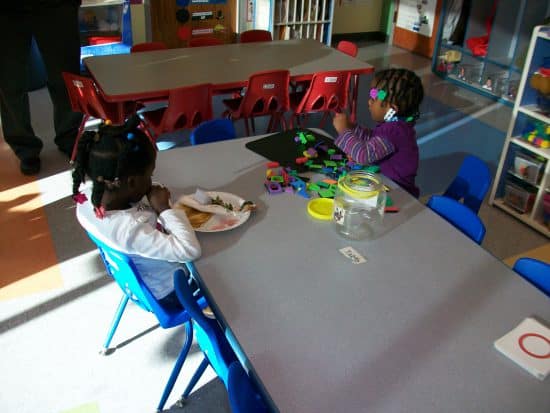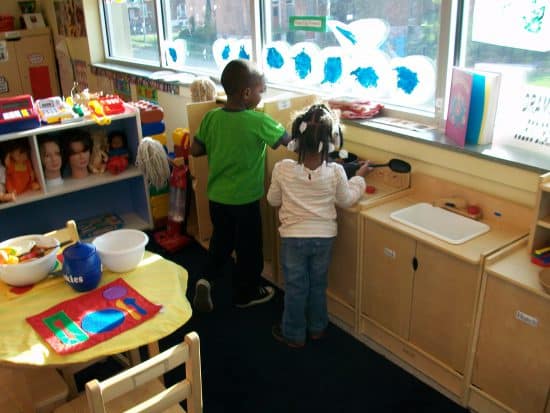
LDA St. Louis: Removing the Labels From Struggling Children
LDA St. Louis exists because children with learning disabilities aren’t getting what they need in our public school classrooms. That’s because our education system is designed to teach to the middle, to the average student. And if that means leaving gifted and poor students at least somewhat adrift, think what it means to the child with a learning disability.
Children with learning disabilities probably need our help the most, yet are so often those getting the least help of all. Their parents, meanwhile, may not even know their children have learning disabilities. Even if parents suspect this is the case, they may have no idea where to turn to get their children the help they need.
Enter the St. Louis Learning Disabilities Association, Inc. (St. Louis LDA). This nonprofit organization is not only raising awareness and fostering acceptance of learning disabilities, it also helps parents advocate for the assistance their children need to do and be their best. We thought this reason enough to make St. Louis LDA the latest Kars4Kids small grant recipient. We believe in the importance of the work they’re doing at St. Louis LDA and we think you’ll agree with us after reading this interview with Pam Kortum, CEO of St. Louis LDA.
Kars4Kids: How do parents know they need the services of St. Louis LDA? How do they find you?
Pam Kortum: When a child flounders in school, the parent many times will reach out to LDA to see what needs to be done to help. They can find out about LDA by our website, word of mouth from a friend, teacher or principal at the school or pediatrician. We also get referrals from hospitals in the area.
Kars4Kids: What percentage of St. Louis schoolchildren struggles with learning difficulties, autism, or ADHD?
Pam Kortum: About 3 million children in the US struggle with learning issues. That equates to about 3-5 children in each classroom.
Kars4Kids: Your website states that in 2013, for instance, you were able to award over $300,000 in low or no-cost services to more than 27,500 parents and children. Is this the bulk of your clientele? What is the total number of children you serve in a given year?
Pam Kortum: Each year LDA awards more than $300,000 in free and reduced fees to children and families in our community. While we have had more than 33,000 interactions with parents, teachers and children in 2016, the actual number of children we saw would be about 3500. We provide financial aid to children in our community as we do not like to turn anyone away from our services because of money issues. While we do offer financial aid to clients, we also have fees for services for those that can pay.
Kars4Kids: Why is St. Louis LDA needed? Is it a failing of our educational system that these services must be provided by nonprofits, rather than by schools?
Pam Kortum: St. Louis LDA was created to enhance what the area schools are able to do for families. Because districts have restrictions of resources and personnel, families are often left to figure out what is needed for a child who struggles on their own. That is where LDA comes in. We can be involved from the first phone call regarding a struggling child all the way through testing, tutoring and anything else that might be needed to help that child succeed. Our very strong advocacy program helps families create the best programming for their child, and we continue to case manage that family as long as our services are needed.
Kars4Kids: One of your services is to attend IEP and 504 meetings to help work out appropriate programming for students. Tell us a bit more about this service. Why is this needed?
Pam Kortum: Because schools have restraints when it comes to providing services for children, it helps having a qualified professional attend meetings with families to let them know what their rights are and to help them create programming that would be the most beneficial to their child. I would like to say this happens without specialized intervention in the schools, but it is a fact that it does not.
There is also a level a severity that is present in degrees in each child. If the child is not acting out and causing a problem in the classroom, many times that child is just passed over and the parents really need to educate themselves about what is necessary in the school system to help that child.
In addition if a child is tested in the public school and does not qualify by DESE guidelines, it does not mean the child does not have an issue, it means that the child just did not meet the number guideline for the State to give them services. It is then that LDA has to be creative in helping to get services for a child who still continues to struggle. Sometimes the child is very close to qualifying so we ask them to possibly rethink the outcome.
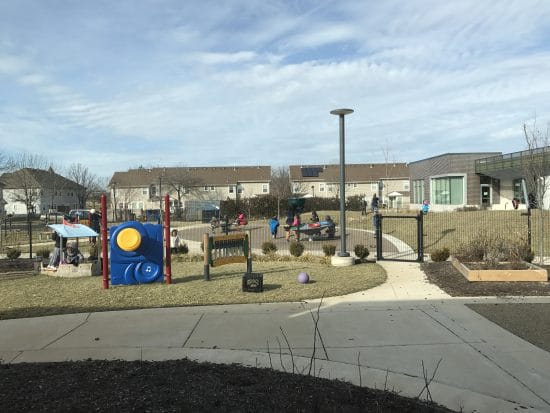
Kars4Kids: You are accomplishing so much with what seems like a small number of staff. Do you have a lot of volunteers? How are you able to do so much with so few?
Pam Kortum: We have about 100 volunteers and that includes our Board of Directors. However, our volunteers do not work with our children or satisfy any service delivery for us. They mostly help us during our fundraising events.
All service delivery is all done by our wonderful staff who work very hard to help children succeed. They are very dedicated and love what they do and it really makes a difference when you have a very qualified staff providing service to the community.
Kars4Kids: You offer parent coaching. What can parents gain from coaching sessions?
Pam Kortum: Parent coaching is designed to help parents get on the same page regarding a child that may be causing issues at home or in school, whether it be with behavior or academics. A plan is created between parents and clinician so that structure is provided to the student and all family members can operate cohesively with a goal in sight. This program often runs together with our advocacy program or one of our other family programs.
Kars4Kids: The seeds of St. Louis LDA were planted in 1966, though you became an independent organization in 2003. How would you compare our state of awareness regarding learning difficulties then and now?
Pam Kortum: Certainly there has been movement in awareness for children with learning issues but we still have a very long way to go. I am a proponent for good education for all children with or without a label of some sort. In a perfect world the districts would educate every child that walks through their doors because that is what the law says they should do. Every child is entitled to a free and appropriate education. However, labels are the only way to get specialized services to help children who struggle in the classroom.
Kars4Kids: What more should we/can we be doing to help children with learning difficulties?
Pam Kortum: The answer to this starts with this: Why should a child have to have a label before they can get what they need to be successful in the classroom? “Response to Intervention” was begun because the idea was to offer strategies to a child who was struggling even before they were tested.
Sometime this works well and sometimes it does not. In theory this sounds great, but it did not transfer to the struggling child as it was supposed to. Some districts take way too long to try those strategies and the child can flounder for a whole year or longer. They also will tell parents that your child is making slight progress so we do not need to do anything else to help them. That still means they can be very far below grade level. A parent really needs to be knowledgeable when it comes to working with the district to get the best services for a struggling child. LDA is available to help them navigate this system so that the child gets the best the district has to offer and becomes successful.
Kars4Kids: What’s next for St. Louis LDA?
Pam Kortum: St. Louis LDA continues to grow trying to help as many children, families and teachers that reach out for help and support. We have grown from a very grass roots organization to one that is focused on helping as many people as possible.
In 2001 our budget was $125,000 and it hit $1,000,000 in 2008. Today we sit at $1,500,000 and each year the number of people we touch increases by the thousands. Our goal is to offer the best, premier services we are able to give so that children can reach their full potential. It takes a “whole village to raise a child” and LDA is the catalyst that provides the conduit to make that happen.
